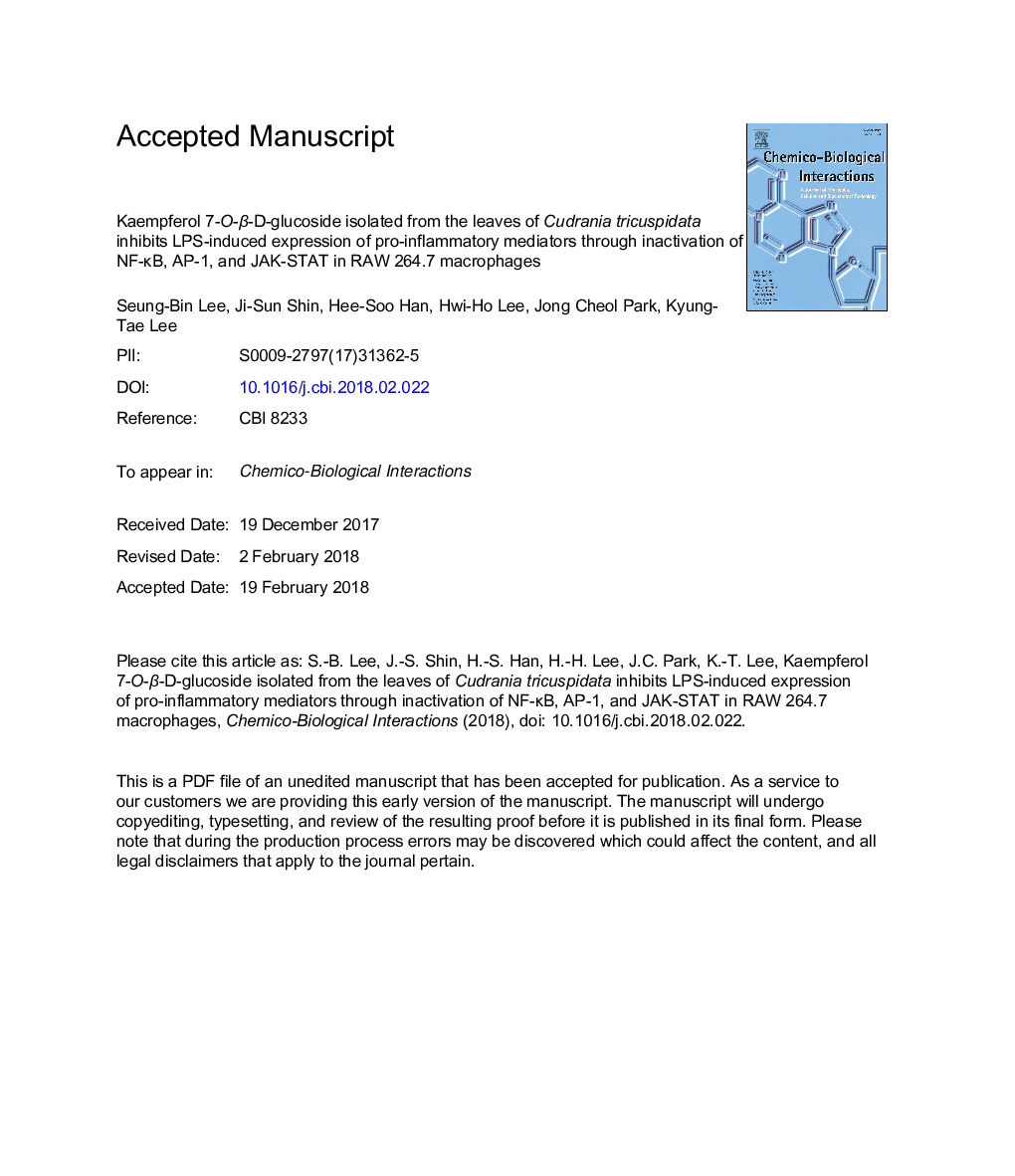| Article ID | Journal | Published Year | Pages | File Type |
|---|---|---|---|---|
| 8544977 | Chemico-Biological Interactions | 2018 | 43 Pages |
Abstract
Kaempferol 7-O-β-D-glucoside (KPG), a natural flavonol isolated from Cudrania tricuspidata, has been reported to exert anti-cancer effects; however, its anti-inflammatory effects have not yet been reported. In this study, we demonstrate the suppressive effect of KPG on the production of nitric oxide (NO), prostaglandin E2 (PGE2), tumor necrosis factor-α (TNF-α), interleukin-1β (IL-1β), and interleukin-6 (IL-6) in lipopolysaccharide (LPS)-induced RAW 264.7 macrophages and mouse bone marrow-derived macrophages. KPG downregulated the expression of inducible nitric oxide synthase (iNOS) and cyclooxygenase-2 (COX-2) at the protein level and iNOS, COX-2, TNF-α, IL-1β, and IL-6 at the mRNA level in LPS-treated RAW 264.7 macrophages. Moreover, we elucidated the underlying molecular mechanism, demonstrating that KPG attenuated LPS-induced nuclear factor-κB (NF-κB) activation by decreasing p65 nuclear translocation, inhibiting κBα (IκBα) phosphorylation/degradation and IκB kinaseα/β (IKKα/β) phosphorylation. KPG additionally reduced LPS-induced activator protein-1 (AP-1) activity by inhibiting c-Fos expression in the nucleus, though c-Jun was not affected. Furthermore, we revealed that KPG significantly abrogated the LPS-induced phosphorylation of signal transducer and activator of transcription (STAT) 1 (Ser 727, Tyr 701) and STAT3 (Tyr 705) through inhibiting the phosphorylation of Janus kinase (JAK) 1 and JAK2, its upstream activating proteins. Taken together, our data suggest that KPG induces anti-inflammatory activity by blocking NF-κB, AP-1, and JAK-STAT signaling pathways in LPS-treated RAW 264.7 macrophages, thus suppressing inflammatory mediators.
Related Topics
Life Sciences
Environmental Science
Health, Toxicology and Mutagenesis
Authors
Seung-Bin Lee, Ji-Sun Shin, Hee-Soo Han, Hwi-Ho Lee, Jong Cheol Park, Kyung-Tae Lee,
